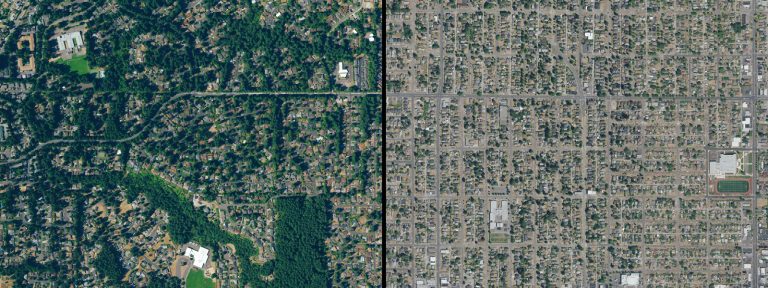Published on August 17, 2020

Social inequalities, specifically racism and classism, are impacting the biodiversity, evolutionary shifts, and ecological health of plants and animals in our cities.
That’s the main finding of a review paper led by the University of Washington, with co-authors at the University of California, Berkeley, and University of Michigan, which examined more than 170 published studies and analyzed the influence of systemic inequalities on ecology and evolution. Published Aug. 13 in Science, it calls on the scientific community to focus on environmental justice and anti-racism practices to transform biological research and conservation.
“Racism is destroying our planet, and how we treat each other is essentially structural violence against our natural world,” said lead author Christopher Schell, an assistant professor of urban ecology at the University of Washington Tacoma. “Rather than just changing the conversation about how we treat each other, this paper will hopefully change the conversation about how we treat the natural world.”
The paper cites other studies that have found racism and other inequalities are reducing biodiversity, increasing urban heat island effects and augmenting impacts of climate crises across the United States.
For example, several studies the authors included found fewer trees in low-income and racially minoritized neighborhoods in major cities across the U.S. Less tree cover means hotter temperatures and fewer plant and animal species. Additionally, these areas tend to be closer to industrial waste or dumping sites than wealthier, predominantly white areas — a reality that was put in place intentionally through policies like redlining, the authors explain.
Fewer trees, over decades, has led to pockets of neighborhoods that are hotter, more polluted, and have more disease-carrying pests such as rodents and mosquitoes that can survive in harsh environments. These ecological differences inevitably affect human health and well-being, the authors said.
Co-authors are Cleo Woelfle-Erskine of the UW School of Marine and Environmental Affairs; Karen Dyson, Tracy Fuentes, and Simone Des Roches of the UW College of Built Environments; Danica Miller of UW Tacoma Social and Historical Studies; Nyeema Harris of the University of Michigan; and Max Lambert of University of California, Berkeley.
Continue reading at UW News.
Originally written by Michelle Ma for UW News.